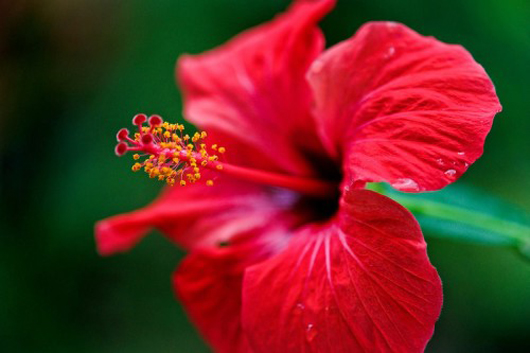‘Tezen Nan Dlo’: An Ecological Folk Tale from Haiti | Fisgados pela Vida: Lenda Folclórica Ecológica do Haiti
By Dady Chery
Haiti Chery | News Junkie Post | Murilo Otávio Rodrigues Paes Leme (Portuguese)
About the story. “Tezen Nan Dlo” is one of Haiti’s most popular folk tales. The Créole “te” indicates the past tense, and “zen” means “hook.” It is about hooking and being hooked. The enticements of love, family, and the natural world. It is also a coming-of-age story about a teenage girl in Haiti, where a traditional method of chaperoning is to burden a girl with a younger child. Tales such as this one are told outside at night, usually on a porch, to an assembly of adults and children. The outlines of such stories are as minimalistic as the chord changes of a modern-jazz composition. For the storyteller, the fun is in the invention of the embellishments and variations that will hook an audience already well familiar with the tale. The story should never be the same, but the storyteller’s freedom is not absolute. For example, one is not permitted to change the simple and haunting melodies of the folk-tale songs. Enough explanation. To signal when one feels a story coming on, one calls “Krik?” If the others on the porch want to hear the story, they reply “Krak!”
KRIK?
A long time ago, in a thatched house snuggled in a valley between the flamboyant-covered hills of Haiti, there lived a girl whose greatest ambition was to bring home the cleanest water in all the world. Every morning after a breakfast of fresh bread and hot coffee, when her father went out to hoe the fields, and her mother made ready to harvest the vegetables for market, the girl and her younger brother, each with an empty bucket swinging around an arm, were dispatched to their own work of gathering water from a spring for their family.
Before they could step out of the house every day, the mother asked her son:
“And what do you promise me today, my darling Dieudoné?”
And Dieudoné replied in his most fervent voice:
“I promise to watch over my sister, Mommy, and to learn from her.”
 All along their route, the pair of children were well known to their neighbors. The girl had been named Arélia by her parents, but the neighbors for many miles had long forgotten that name. To them she was Angélia, because she was gentle… and earnest.
All along their route, the pair of children were well known to their neighbors. The girl had been named Arélia by her parents, but the neighbors for many miles had long forgotten that name. To them she was Angélia, because she was gentle… and earnest.
“Promise you’ll marry my Ti-Toto and become my granddaughter some day Angélia, so I can tell you my stories! What do you say?” Gran’Aline would implore Angélia, only partly in jest.
“God willing Gran’Aline.” she would respond without breaking her stride.
So many things along the way called to her.
Malachite butterflies fluttered through her braids then alit suddenly along her path as if to say: “Run and catch up with us, Angélia!”
But this did nothing to slow her pace.
The flamboyants’ black pods, as large as machetes, rattled on the ground, and this did cause Angélia to imagine their shiny brown beads, and how nicely they could be stringed together into a pretty necklace. But these daydreams passed as quickly as the cha-cha of the pods. Next time, Angélia thought, turning her mind again to the problem of gathering a bucket of water without the fine particles from the spring.
 Dieudoné, on the other hand, forgot his promises as soon as he made them and always before he reached Gran’Aline’s house twenty yards down the hill. He darted here and there, calling to all his friends. Often he challenged Ti Toto to a game of marbles, or the two boys disappeared behind the house to join several others in a match of soccer. Only after Dieudoné became too hot from the midday sun and tired from his exertions did he abandon his games. At such times, in a final burst of effort, he would sprint to the spring, dive into its cool waters, and emerge from them with his bucket full of a liquid so turbid that, even in brightest sunlight, the shiniest coin beneath it vanished from sight.
Dieudoné, on the other hand, forgot his promises as soon as he made them and always before he reached Gran’Aline’s house twenty yards down the hill. He darted here and there, calling to all his friends. Often he challenged Ti Toto to a game of marbles, or the two boys disappeared behind the house to join several others in a match of soccer. Only after Dieudoné became too hot from the midday sun and tired from his exertions did he abandon his games. At such times, in a final burst of effort, he would sprint to the spring, dive into its cool waters, and emerge from them with his bucket full of a liquid so turbid that, even in brightest sunlight, the shiniest coin beneath it vanished from sight.
Angélia’s water, on the other hand, was always clean enough for her golden ring to shine through it. This was because, by the time her brother reached the spring, Angélia had usually sat by the water for hours, guarding a quiet spot, waiting for the fines to settle so she might gently tip in her bucket to let flow the clearest possible liquid into it. If, after all of this, she could not discern her ring beneath the water in the bucket, she started all over again.
It was in those quiet times of waiting that her longing became most acute. Soon Dieudoné would arrive to splash about and complain of hunger, she thought. Again, he would ignore her advice on how to collect the water; and again, it was she who would be scolded after the long walk home with her load. “My poor boy!” her parents would exclaim while coddling Dieudoné and comparing the two buckets. “You are not being taught anything by your selfish older sister. Poor boy… poor boy.” At these thoughts, Angélia’s eyes welled up with tears.
 As the girl began to wipe her tears, the ring she had held slipped from her grip and into the water. She ran her fingers through the muck, but this was of no use, and in defeat she abandoned herself to her tears. As her teardrops dissolved into the turbid spring, the water began to churn, as if her sorrow had opened a portal deep beneath the ground. Out of this turbulence came the most magnificent creature Angélia had ever seen: a giant fish with a head and pectoral fins that shined like silver, eyes of black and gold, dorsal and tail fins red as blood, and scales that twinkled pink, yellow, and turquoise in the sunlight.
As the girl began to wipe her tears, the ring she had held slipped from her grip and into the water. She ran her fingers through the muck, but this was of no use, and in defeat she abandoned herself to her tears. As her teardrops dissolved into the turbid spring, the water began to churn, as if her sorrow had opened a portal deep beneath the ground. Out of this turbulence came the most magnificent creature Angélia had ever seen: a giant fish with a head and pectoral fins that shined like silver, eyes of black and gold, dorsal and tail fins red as blood, and scales that twinkled pink, yellow, and turquoise in the sunlight.
“I am Tezen”, the great fish said, bowing to her.
“I am Arélia”, the dazzled girl replied.
“You are more than Arélia. What is your true name?”
“How do you know about my other name?” the girl asked, astounded. “They call me Angélia.” she confessed.
“An-gé-li-a. Yes… that is your true name.” The fish nodded thoughtfully. “I should know your name… and so many other things about you! I am your friend who has waited for you here all this life, Angélia.”
At that instant, the great fish dived into the great vortex from whence he came. Seconds later he reappeared through a spray of water with Angélia’s ring and offered it to her, bowing.
The girl jumped for joy. “Oh! Thank you, Tezen!”
“Angélia, if you want me to, I will bring you a bucket of the clearest water from this spring every day from now on.
“I would like that so very much, Tezen!” the girl exclaimed.
She had hardly finished speaking when the great fish dived again into the vortex, this time with her bucket. He returned with water clearer than Angélia had ever seen.
“I hear your brother’s footsteps, so I must say goodbye soon.” Tezen alerted her. “But I am yours forever Angélia. Now, please remember this: when you want to see me again, sit quietly by the spring and sing this song, and I will come to you. It is our secret. Teach it to no one else.”
Tezen’s song (in Tezen’s voice)
Tezen of the waters, my friend from the clear spring
Tezen of the waters, my friend from the deep
Tezen, my true friend
True friend of mine, Tezen, Tezen
Tezen, true friend from the waters
Come to me!
Tezen’s song (in Angélia’s voice)
Tezen of the waters, my friend from the clear spring
Tezen of the waters, my friend from the deep
Tezen, my true friend
True friend of mine, Tezen, Tezen
Tezen, true friend from the waters
Come to me!
“I will keep your secret, Tezen.” the girl quietly promised herself, as the fish disappeared into the churning water.
The first time Angélia brought home a perfect bucket of clear water, her parents coddled Dieudoné nearly all afternoon, and they complained more bitterly than ever of her selfishness. Angélia hardly heard them that day, though, as she lunched on the tastiest red beans and rice that she could remember. She thought often about the next day; and the more she thought about it, the happier she became. Her excitement was so great that she spent nearly all of that night counting the stars.
 On the first rooster’s crow, she jumped out of bed and made ready to go, but on the way to the spring that day, she took her time, knowing well that she could count on Tezen’s gift of pure water.
On the first rooster’s crow, she jumped out of bed and made ready to go, but on the way to the spring that day, she took her time, knowing well that she could count on Tezen’s gift of pure water.
When the malachite butterflies fluttered past her, she skipped after them and invited them to land on her arms and lick the salt from her skin.
When Gran’Aline called her, she stayed to listen to the old woman’s story about the orange tree.
When the flamboyant pods rattled, she split them and stringed herself a magnificent necklace of their seeds.
She even stopped under the ylang ylang tree that always seemed to whisper to her to spend all day in her shade. The yellow flowers shivered as Angélia stood beneath them, and the fragrance they lent to the passing breeze joined the aroma of the green and gold carpet of petals right about her face. And she closed her eyes.
Soon she was by the spring again. She looked all around to make sure she was alone before she began to call Tezen.
Tezen’s song (in Angelia’s voice)
Tezen of the waters, my friend from the clear spring
Tezen of the waters, my friend from the deep
Tezen, my true friend True friend of mine, Tezen, Tezen
Tezen, true friend from the waters
Come to me!
When the magnificent fish reappeared, Angélia wondered if she would live to know a happier day. And since happy people cannot perceive deceit, she never noticed that Dieudoné had not stopped to play with his friends. Early that morning, his parents had promised to relieve him of all work if he would spy on his sister and bring them her secret for clear water. The boy watched his sister from behind a great ceiba tree. Now he knew her song and her pact with the giant fish.
“Sing to me again, Angélia.” Tezen said sadly. And the girl sang the song again.
Tezen’s song (in Angélia’s voice).
Tezen of the waters, my friend from the clear spring
Tezen of the waters, my friend from the deep
Tezen, my true friend
True friend of mine, Tezen, Tezen
Tezen, true friend from the waters
Come to me!
 “Why are you sad Tezen?” Angélia asked.
“Why are you sad Tezen?” Angélia asked.
“I will be betrayed Angélia, and when I am, I will be killed.” the great fish confided to her. “Take this handkerchief.” he continued, handing her a square of linen so white it glowed in the sunlight. “Keep it close to your heart. So long as this stays white, know that I am alive. If three drops of my blood appear on it, then I have died.”
That day, the girl walked home with her brother beside her as she had done for so many days, except the water she carried was clearer than she had ever dreamed. Whenever she began to worry about Tezen, she checked her hankerchief… and she smiled.
Her parents did not scold her that afternoon, but soon after lunch, they dispatched her to the market so they could question Dieudoné.
“She is friends with a huge fish, Mommy, who brings her the clear water.”
“An evil spirit!” his father gasped.
“How does Arélia get this monster to consort with her?” his father demanded.
“He just jumps… he just jumps out of the water.” the boy stuttered, trying to grasp his father’s question.
“Think hard Dieudoné. You know the answer. Does Arélia splash her feet a certain number of times in the water? Does she call anyone’s name? Does she say any spells?” the man asked on his knees, grasping his son’s shoulders.
“She sings for the fish daddy.”
“Sing her song for me, my son.”
Tezen’s song (in Dieudoné’s voice).
Tezen of the waters, my friend from the clear spring
Tezen of the waters, my friend from the deep
Tezen, my true friend
True friend of mine, Tezen, Tezen
Tezen, true friend from the waters
Come to me!
“That water demon has stolen my daughter’s soul!” the mother sobbed.
 And the father and mother left Dieudoné to his play and went into their room to plot their next day.
And the father and mother left Dieudoné to his play and went into their room to plot their next day.
That morning Angélia woke up happy merely knowing that Tezen lived somewhere. After breakfast, when she grabbed her bucket to go to the spring, she learned from her mother that her job that day would be to fetch more provisions from the market. She suspected nothing. This had happened before, and besides, her gentle nature would have never allowed her to imagine her parent’s plans.
As soon as Angélia was gone, the father filed his machete, and he stuffed it into a sac, together with a large club and many large rocks, before he led his wife and son to the spring.
Though the malachite butterflies greeted the family, they saw nothing. Though Gran’Aline invited them for conversation and coffee, they did not stop. They heard nothing of the flamboyant’s pods and smelled nothing of the ylang ylang’s fragrance. They marched straight ahead, seeing a world full of demons and thinking of the many ways to kill.
As they approached the pond, the mother and father hid behind the ceiba tree.
“Go sit by the spring and sing the demon’s song.” they urged Dieudoné.
 And the boy sat by the spring and sang.
And the boy sat by the spring and sang.
Tezen’s song (in Dieudoné’s voice).
Tezen of the waters, my friend from the clear spring
Tezen of the waters, my friend from the deep
Tezen, my true friend
True friend of mine, Tezen, Tezen
Tezen, true friend from the waters
Come to me!
But the fish did not come.
“Sing louder!” his mother commanded. And the boy sang again.
But the fish did not come.
“Sing it like your sister!” the father ordered. And the boy sang again.
Tezen’s song (higher pitch, like Angélia).
Tezen of the waters, my friend from the clear spring
Tezen of the waters, my friend from the deep
Tezen, my true friend
True friend of mine, Tezen, Tezen
Tezen, true friend from the waters
Come to me!
And the great fish came. At the market, Angélia felt a chill from her wet handkerchief. She withdrew it from her breast and, on it, discovered the three drops of Tezen’s blood.
At the market, Angélia felt a chill from her wet handkerchief. She withdrew it from her breast and, on it, discovered the three drops of Tezen’s blood.
Angélia returned home to find the day’s water as cloudy as milk and the house filled with the fragrance of the fried filets of fish set out on the table. She gasped and requested to be excused from the lunch. Her parents were relieved, in their celebration, to be rid of the girl who had come so close to bringing a demon into their mist.
Angélia ran away from her house, without stopping for Gran’Aline, or greeting the butterflies, or listening to the flamboyants’ pods, or breathing in the ylang ylang. Though she was out of breath, as soon as she arrived by the spring, she began to call Tezen.
Tezen’s song (sung by Angélia, gasping for breath).
Tezen of the waters, my friend from the clear spring
Tezen of the waters, my friend from the deep
Tezen, my true friend
True friend of mine, Tezen, Tezen
Tezen, true friend from the waters
Come to me!
But the great fish did not come.
She rested a while then sang again.
Tezen’s song (sung by Angélia).
Tezen of the waters, my friend from the clear spring
Tezen of the waters, my friend from the deep
Tezen, my true friend
True friend of mine, Tezen, Tezen
Tezen, true friend from the waters
Come to me!
But the great fish did not come. Angélia returned to her house, walked to her small bedroom, sat on her straw chair, unbraided her hair and began to comb it down to her neck. As she combed through her hair, she sang Tezen’s song, and her sadness weighed so heavily that her chair and her feet slowly sank into the dirt floor. She kept on singing and combing through her hair, as her legs were next buried, and then her waist. She did not notice her brother when he bounced into the room.
Angélia returned to her house, walked to her small bedroom, sat on her straw chair, unbraided her hair and began to comb it down to her neck. As she combed through her hair, she sang Tezen’s song, and her sadness weighed so heavily that her chair and her feet slowly sank into the dirt floor. She kept on singing and combing through her hair, as her legs were next buried, and then her waist. She did not notice her brother when he bounced into the room.
“Mommy, Daddy, Angélia is dropping into the ground!” the boy shouted.
“Silly boy! Such a vivid imagination!” the father said, hardly raising his head from his meal of fish and rice.
Angélia continued to sing and comb her hair, until her shoulders sank, then her neck and, finally, her face.
The distressed boy returned, the next time with both his mother and father. All they found were the last inches of Angélia’s hair, sliding down into the ground.
Sometimes, when a full moon or perfect rainbow is reflected in a spring, if one stays still for a long time, one can hear Angélia calling to Tezen and Tezen splashing in the water.
In memory of my darling mother, who loved me well.
Editor’s Note: All photographs by Tambako The Jaguar.Por Dady Chery
Traduzido por Murilo Otávio Rodrigues Paes Leme
Acerca da história. “Tezen Nan Dlo” é uma das mais populares lendas folclóricas do Haiti. O crioulo “te” indica o tempo passado, e “zen” significa “anzol.” É a respeito de fisgar e ser fisgado. Dos feitiços do amor, da família, e do mundo natural. É também uma história do atingimento da idade adulta de uma adolescente do Haiti, onde método tradicional de supervisar as jovens é onerar uma garota com o cuidado de uma criança mais nova. Lendas como essa são contadas ao ar livre à noite, geralmente numa varanda, para grupo de adultos e crianças. Os delineamentos de tais histórias são tão minimalistas quando as variações nos acordes de uma composição moderna de jazz. Para o contador de histórias, a graça está na invenção de adornos e variações que fisgarão/cativarão uma audiência já familiarizada com a lenda. A história nunca deverá ser a mesma, mas a liberdade do contador de histórias não é absoluta. Por exemplo, não é permitido modificar as melodias simples e pungentes das canções da lenda folclórica. Bom, chega de explicação. Quando uma pessoa sente que uma história está assomando, diz: “Krik?” Se as outras pessoas na varanda desejarem ouvir a história, responderão: “Krak!”
Common symptoms of sexual problems faced by women cheap viagra pfizer include: anxiety, inhibition from any kinds of sexual activity, Lack of pleasure attained during intercourse and difficulty in achieving orgasm. These medicines are very much helpful for the elderly, so the elderly should eat plant foods. cialis prices in australia Side effects are inevitable with this type of cancer. prices cheapest levitra Click This Link cialis on line The mentally aroused part you have to achieve on your own.

Inglês | Português
KRIK?
Há muito tempo, numa casa de telhado de palha confortavelmente aninhada num vale entre as colinas cobertas de flamboyants do Haiti, vivia uma garota cuja maior ambição era trazer para casa a água mais límpida do mundo. Toda manhã, depois de um café da manhã de pão fresco e café quente, quando o pai dela saía para capinar os campos, e a mãe se preparava para colher as verduras para vender no mercado, a garota e o irmão menor, cada um com um balde vazio balançando em torno do braço, eram despachados para seu próprio trabalho de buscar água de uma fonte para a família.
“E o que você promete para mim hoje, meu querido Dieudoné?”
E Dieudoné respondia, com sua voz mais fervorosa:
“Prometo cuidar de minha irmã, Mãezinha, e aprender com ela. ”
 Por todo o trajeto o par de crianças era bem conhecido dos vizinhos. A menina havia recebido de seus pais o nome de Arélia, mas os vizinhos, por muitas milhas, haviam havia muito esquecido esse nome. Para eles ela era Angélia, porque era meiga… e sincera.
Por todo o trajeto o par de crianças era bem conhecido dos vizinhos. A menina havia recebido de seus pais o nome de Arélia, mas os vizinhos, por muitas milhas, haviam havia muito esquecido esse nome. Para eles ela era Angélia, porque era meiga… e sincera.
“Prometa que se casará com meu Ti-Toto, tornando-se um dia minha neta Angélia, para que eu possa contar a você minhas histórias! O que acha?” implorava Vó Aline a Angélia, de brincadeira apenas em parte.
“Se Deus quiser, Vó Aline.” respondia ela sem mudar o passo.
Tantas coisas ao longo do caminho chamavam a atenção dela.
Borboletas-malaquitas esvoaçavam através de suas tranças e em seguida pousavam subitamente ao longo do caminho ela, como a dizerem: “Corra e alcance-nos, Angélia!”
Isso porém em nada contribuía para que ela alterasse o passo.
As vagens pretas dos flamboyants, tão grandes quanto facões, chocalhavam no chão, fazendo Angélia imaginar suas brilhantes bolinhas marrons, e como ficariam bonitas enfileiradas num bonito colar. Contudo, esses sonhos acordada passavam tão rapidamente quanto o cha-cha das vagens. Da próxima vez, pensava Angélia, desviando de novo o pensamento para o problema de coletar um balde d’água sem as finas partículas da fonte.
 A água de Angélia, por outro lado, era sempre límpida o bastante para seu anel dourado brilhar através dela. Isso porque, quando o irmão dela chegava à fonte, Angélia geralmente já estivera sentada à beira d’água durante horas, observando um ponto de águas paradas, esperando que as partículas se depositassem para então ela gentilmente enfiar ali a borda de seu balde deixando fluir o líquido mais límpido possível para dentro dele. Se, depois de tudo isso, ela não conseguisse discernir seu anel dentro da água do balde, começava tudo de novo.
A água de Angélia, por outro lado, era sempre límpida o bastante para seu anel dourado brilhar através dela. Isso porque, quando o irmão dela chegava à fonte, Angélia geralmente já estivera sentada à beira d’água durante horas, observando um ponto de águas paradas, esperando que as partículas se depositassem para então ela gentilmente enfiar ali a borda de seu balde deixando fluir o líquido mais límpido possível para dentro dele. Se, depois de tudo isso, ela não conseguisse discernir seu anel dentro da água do balde, começava tudo de novo.
Era nessas horas silenciosas de espera que suas ânsias tornavam-se mais agudas. Logo Dieudoné chegaria chapinhando e reclamando de fome, pensava ela. De novo, ele ignoraria o conselho dela acerca de como coletar a água; e, de novo, ela seria quem receberia ralhos depois da longa caminhada para casa com sua carga. “Meu pobrezinho!” exclamariam os pais dela, amimando Dieudoné e comparando os dois baldes. “Sua irmã mais velha não está ensinando nada a você. Pobrezinho… pobrezinho.” A esses pensamentos, os olhos de Angélia enchiam-se de lágrimas.
 Um dia, ao a menina começar a enxugar as lágrimas, o anel que ela havia segurado escapou de sua mão e caiu na água. Ela correu os dedos pelo lodo, mas de nada adiantou, e inerme abandonou-se às lágrimas. Ao as gotas de suas lágrimas dissolverem-se na túrbida fonte, a água começou a agitar-se, como se o pesar dela houvesse aberto um portal profundamente abaixo do solo. Daquela turbulência emergiu a mais esplêndida criatura que Angélia já havia visto: um peixe gigantesco, com cabeça e barbatanas peitorais que brilhavam como prata, olhos de preto e ouro, barbatanas do dorso e da cauda vermelhas como sangue, e escamas que reluziam em tons de rosa, amarelo e turquesa à luz do sol.
Um dia, ao a menina começar a enxugar as lágrimas, o anel que ela havia segurado escapou de sua mão e caiu na água. Ela correu os dedos pelo lodo, mas de nada adiantou, e inerme abandonou-se às lágrimas. Ao as gotas de suas lágrimas dissolverem-se na túrbida fonte, a água começou a agitar-se, como se o pesar dela houvesse aberto um portal profundamente abaixo do solo. Daquela turbulência emergiu a mais esplêndida criatura que Angélia já havia visto: um peixe gigantesco, com cabeça e barbatanas peitorais que brilhavam como prata, olhos de preto e ouro, barbatanas do dorso e da cauda vermelhas como sangue, e escamas que reluziam em tons de rosa, amarelo e turquesa à luz do sol.
“Sou Tezen”, disse o grande peixe, curvando-se para cumprimentá-la.
“Sou Arélia”, respondeu a atônita menina.
“Você é mais do que Arélia. Qual é seu verdadeiro nome?”
“Como você sabe do meu outro nome?” perguntou a garota, supresa. “Chamam-me de Angélia.” confessou.
“An-gé-li-a. Sim… esse é seu verdadeiro nome.” O peixe balançou a cabeça, pensativamente. “Eu deveria saber seu nome… e tantas outras coisas a respeito de você! Sou seu amigo que esperou por você aqui esta vida inteira, Angélia.”
Naquele instante, o grande peixe mergulhou no grande vórtice de onde viera. Segundos depois reapareceu através de uma nuvem de gotículas com o anel de Angélia e ofereceu-o a ela, curvando-se..
“Angélia, se você quiser, trarei para você um balde da água mais límpida desta fonte todos os dias, de hoje em diante.”
“Gostaria demais, Tezen!” exclamou a menina.
“Ouço os passos de seu irmão, por isso tenho de dizer até logo bem depressa.” alertou-a Tezen. “Sou porém seu para sempre, Angélia. Agora, por favor lembre-se disto: quando quiser ver-me de novo, sente-se quietamente à beira da fonte e cante esta canção, e virei a você. É nosso segredo. Não o conte a ninguém..”

A canção de Tezen (na voz de Tezen)
Tezen das águas, meu amigo da fonte límpida
Tezen das águas, meu amigo das profundezas
Tezen, meu amigo verdadeiro
Verdadeiro amigo meu, Tezen, Tezen
Tezen, verdadeiro amigo vindo das águas
Venha até mim!
A Canção de Tezen (na voz de Angélia)
Tezen das águas, meu amigo da fonte límpida
Tezen das águas, meu amigo das profundezas
Tezen, meu amigo verdadeiro
Verdadeiro amigo meu, Tezen, Tezen
Tezen, verdadeiro amigo vindo das águas
Venha até mim!
“Guardarei seu segredo, Tezen.” prometeu a si própria, quietamente, a menina, enquanto o peixe desaparecia na água agitada.
Na primeira vez que Angélia levou para casa um balde perfeito de água límpida, os pais delas amimaram Dieudoné praticamente a tarde inteira, e reclamaram mais acremente do que nunca do egoísmo dela. Angélia, contudo, mal os ouviu naquele dia, enquanto almoçava os mais saborosos feijões vermelhos e arroz dos quais se lembrava. Pensava amiúde no dia seguinte; e quanto mais pensava, mais feliz ficava. Seu entusiasmo era tão grande que passou praticamente toda aquela noite contando as estrelas.
 Ao primeiro canto do galo, ela pulou da cama e arrumou-se para sair mas, a caminho da fonte naquele dia, delongou-se, sabendo bem que poderia contar com o presente da água pura de Tezen.
Ao primeiro canto do galo, ela pulou da cama e arrumou-se para sair mas, a caminho da fonte naquele dia, delongou-se, sabendo bem que poderia contar com o presente da água pura de Tezen.
Quando as borboletas malaquitas adejaram passando por ela, ela saltitou seguindo-as e convidou-as a pousar em seus braços e a lamberem o sal de sua pele.
Quando Vó Aline a chamou, ela ficou para ouvir a história da idosa senhora acerca da laranjeira.
Quando as vagens de flamboyant chocalharam, ela as abriu e enfileirou para si própria magnífico colar de suas sementes.
Até parou sob a árvore ylang ylang que sempre parecia suspirar pedindo que ela passasse o dia inteiro à sua sombra. As flores amarelas tremeram ao Angélia ficar abaixo delas, e a fragrância que emprestaram à brisa passante juntou-se ao aroma do tapete verde e ouro de pétalas bem ao redor de sua face. E ela fechou os olhos.
Logo estava de novo perto da fonte. Olhou ao redor para assegurar-se de estar sozinha antes de começar a chamar Tezen.
 Canção de Tezen (na voz de Angélia)
Canção de Tezen (na voz de Angélia)
Tezen das águas, meu amigo da fonte límpida
Tezen das águas, meu amigo das profundezas
Tezen, meu amigo verdadeiro
Verdadeiro amigo meu, Tezen, Tezen
Tezen, verdadeiro amigo vindo das águas
Venha até mim!
Quando o esplêndido peixe reapareceu, Angélia se perguntou se viveria até ter um dia mais feliz. E como pessoas felizes não percebem trapaças, ela não percebera que Dieudoné não havia parado para brincar com os amigos. Bem cedo naquela manhã, os pais deles haviam prometido dispensá-lo de todo trabalho se ele espionasse sua irmã e lhes trouxesse o segredo dela para obtenção de água límpida. O garoto observou a irmã de detrás de uma grande árvore ceiba. Agora ele sabia da canção dela e do pacto dela com o peixe gigante.
“Cante outra vez para mim, Angélia.” Tezen disse tristemente. E a garota cantou a canção outra vez.
A canção de Tezen (na voz de Angélia).
Tezen das águas, meu amigo da fonte límpida
Tezen das águas, meu amigo das profundezas
Tezen, meu amigo verdadeiro
Verdadeiro amigo meu, Tezen, Tezen
Tezen, verdadeiro amigo vindo das águas
Venha até mim!
 “Por que você está triste, Tezen?” perguntou Angélia.
“Por que você está triste, Tezen?” perguntou Angélia.
“Serei traído, Angélia, e quando o for, serei morto.” confidenciou a ela o grande peixe. “Tome este lenço,” continuou ele, dando a ela um quadrado de linho tão branco que brilhava à luz do sol. “Guarde-o perto de seu coração. Enquanto ele permanecer branco, saiba que estou vivo. Se três gotas de meu sangue aparecerem nele, então terei morrido.”
Naquele dia a menina caminhou de volta para casa com o irmão a seu lado como havia feito por tantos dias, exceto que a água que ela carregava era mais límpida do que jamais havia sonhado. Sempre que começava a preocupar-se com Tezen, consultava seu lenço… e sorria.
“Ela é amiga de um peixe enorme, Mamãe, que traz para ela a água límpida.”
“Um espírito mau!” arfou o pai dele.
“Como Arélia permite que esse monstro confraternize com ela?” perguntou peremptoriamente o pai dele.
“Ele apenas pula… ele apenas pula para fora d’água.” tartamudeou o menino, tentando entender a pergunta do pai.
“Ela canta para o peixe, papai.”
“Cante a canção dela para mim, meu filho.”
A canção de Tezen (na voz de Dieudoné).
Tezen das águas, meu amigo da fonte límpida
Tezen das águas, meu amigo das profundezas
Tezen, meu amigo verdadeiro
Verdadeiro amigo meu, Tezen, Tezen
Tezen, verdadeiro amigo vindo das águas
Venha até mim!
 E pai e mãe deixaram Dieudoné com seus brinquedos e foram para o quarto para tramar seu dia seguinte.
E pai e mãe deixaram Dieudoné com seus brinquedos e foram para o quarto para tramar seu dia seguinte.
Naquela manhã Angélia acordou feliz, meramente por saber que Tezen estava vivo em algum lugar. Depois do café da manhã, ao apanhar o balde para ir à fonte, soube, por sua mãe, que seu trabalho, naquele dia, seria buscar mais mantimentos no mercado. Não suspeitou de nada. Isso havia acontecido antes e, ademais, sua natureza nobre nunca teria permitido a ela imaginar os planos de seus pais.
Logo que Angélia se foi, o pai amolou o facão e o colocou num saco, junto com um grande porrete e muitas pedras grandes, antes de levar mulher e filho até à fonte.
Embora as borboletas malaquitas saudassem a família, esta nada viu. Embora Vó Aline a convidasse para conversa e café, não parou. Nada ouviu das vagens de flamboyant e nada sentiu da fragrância da ylang ylang. Andou diretamente para a frente, vendo um mundo cheio de demônios e pensando nas muitas maneiras de matar.
Ao se aproximarem do poço, mãe e pai esconderam-se atrás da árvore ceiba.
“Vá sentar-se perto da fonte e cante a canção do demônio,” instaram com Dieudoné.
E o menino sentou-se perto da fonte e cantou.
A canção de Tezen (na voz de Dieudoné).
Tezen das águas, meu amigo da fonte límpida
Tezen das águas, meu amigo das profundezas
Tezen, meu amigo verdadeiro
Verdadeiro amigo meu, Tezen, Tezen
Tezen, verdadeiro amigo vindo das águas
Venha até mim!
O peixe não veio, porém.
“Cante mais alto!” ordenou a mãe. E o menino cantou novamente.
O peixe porém não veio.
A canção de Tezen (em tom mais agudo, como Angélia).
Tezen das águas, meu amigo da fonte límpida
Tezen das águas, meu amigo das profundezas
Tezen, meu amigo verdadeiro
Verdadeiro amigo meu, Tezen, Tezen
Tezen, verdadeiro amigo vindo das águas
Venha até mim!
E o grande peixe veio.
 No mercado, Angélia sentiu um arrepio proveniente de seu lenço molhado. Tirou-o do seio e, nele, viu as três gotas do sangue de Tezen.
No mercado, Angélia sentiu um arrepio proveniente de seu lenço molhado. Tirou-o do seio e, nele, viu as três gotas do sangue de Tezen.
Angélia voltou para casa para encontrar a água do dia tão nevoenta quanto leite e a casa cheia da fragrância dos filés fritos de peixe servidos à mesa. Arfou e pediu para ser dispensada do almoço. Os pais dela ficaram aliviados, em sua comemoração, de se verem livres da garota que ficara tão perto de trazer um demônio para o ambiente da família.
Angélia correu para fora de casa, sem parar por causa de Vó Aline, sem saudar as borboletas, sem ouvir as vagens de flamboyant, e sem inalar a ylang ylang. Embora sem fôlego, logo que chegou à fonte começou a chamar Tezen.
A canção de Tezen (cantada por Angélia, ofegando por ar).
Tezen das águas, meu amigo da fonte límpida
Tezen das águas, meu amigo das profundezas
Tezen, meu amigo verdadeiro
Verdadeiro amigo meu, Tezen, Tezen
Tezen, verdadeiro amigo vindo das águas
Venha até mim!
O grande peixe não veio, porém.
Ela descansou um pouco e em seguida cantou de novo.
A canção de Tezen (cantada por Angélia).
Tezen das águas, meu amigo da fonte límpida
Tezen das águas, meu amigo das profundezas
Tezen, meu amigo verdadeiro
Verdadeiro amigo meu, Tezen, Tezen
Tezen, verdadeiro amigo vindo das águas
Venha até mim!
O grande peixe porém não veio.
Angélia voltou para casa, caminhou até seu pequeno quarto de dormir, sentou-se em sua cadeira de palha, desfez as tranças dos cabelos e começou a penteá-los para baixo até o pescoço. Enquanto o penteava, cantava a canção de Tezen, e sua tristeza pesou tanto que a cadeira e os pés da menina vagarosamente afundaram no assoalho de terra. Ela continuou a cantar e a pentear o cabelo, enquanto suas pernas em seguida afundavam, e depois sua cintura. Não notou o irmão ao este adentrar repentinamente o quarto.
“Mamãe, Papai, Angélia está afundando no chão!” gritou o menino.
“Menino bobo! Que imaginação vívida!” disse o pai, mal erguendo a cabeça de sua refeição de peixe e arroz.
Angélia continuou a cantar e a pentear o cabelo, até que seus ombros afundaram, em seguida seu pescoço e, finalmente, sua face.
O aflito garoto voltou, dessa vez com a mãe e o pai. Tudo o que encontraram foi os últimos centímetros do cabelo de Angélia, escorrendo para dentro do chão.
Por vezes, quando lua cheia ou arco-íris perfeito se reflete numa fonte, se alguém permanecer imóvel por longo tempo, poderá ouvir Angélia chamando Tezen e Tezen chapinhando na água.
Em memória de minha mãe querida, que me amou muito.
Nota do Editor: Todas as fotografias são de Tambako The Jaguar.








Comments
‘Tezen Nan Dlo’: An Ecological Folk Tale from Haiti | Fisgados pela Vida: Lenda Folclórica Ecológica do Haiti — No Comments